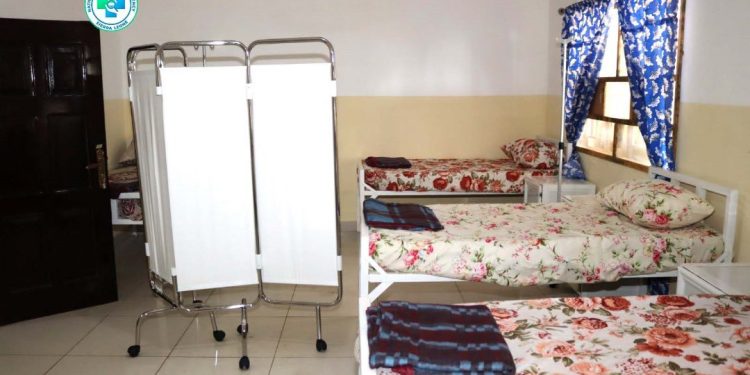By Hassan Osman Kargbo
In a decisive effort to combat the ongoing mpox outbreak, Sierra Leone’s Ministry of Health (MoH), National Public Health Agency (NPHA), and Freetown City Council, in collaboration with Médecins Sans Frontières (MSF) Sierra Leone, inaugurated a new 50-bed mpox treatment center in Calaba Town, Freetown, on Monday, June 9, 2025.
The newly established facility marks a significant step in bolstering Sierra Leone’s public health infrastructure by offering specialized care and comprehensive case management for mpox patients. Equipped to handle the complexities of this viral zoonotic disease, the center also emphasizes infection prevention, surveillance, and community outreach to mitigate the spread of the virus and reduce stigma.
Mpox, formerly known as monkeypox, presents a serious public health threat, especially for immunocompromised individuals. It can lead to severe illness and overwhelm healthcare systems if not properly managed. The establishment of this treatment center underscores the government’s commitment to containing the outbreak and protecting vulnerable populations.
Dr. Sia Y. Fasuluku, District Medical Officer for the Western Urban Area, highlighted the urgency of the situation during the launch event. “Early detection and timely intervention are critical to curbing transmission and preventing severe cases,” she said. “Improved diagnostics, sustained public health measures, and community engagement remain our top priorities.”
The treatment center serves multiple functions beyond patient care. It enhances contact tracing efforts, providing health workers with the resources to identify and monitor those exposed to the virus. The facility also supports risk communication strategies aimed at educating the public about mpox symptoms and transmission, which is vital to encouraging early treatment and reducing misinformation and stigma.
This initiative builds on Sierra Leone’s hard-won experience with previous epidemics, notably the Ebola outbreak, which tested the country’s health system resilience. Partnering with MSF brings in essential technical expertise and logistical support, enabling a coordinated and effective response.
Health authorities continue to stress the importance of strengthening diagnostic capacity nationwide to ensure cases are identified promptly. While vaccination against mpox is not yet widely available in Sierra Leone, plans are underway to expand immunization efforts should vaccines become accessible. Meanwhile, community trust and cooperation remain central to outbreak control strategies.
The public is urged to remain vigilant and report any symptoms consistent with mpox, including fever, rash, and swollen lymph nodes, by calling the emergency helpline at 117. Avoiding close contact with infected individuals or animals and practicing good hygiene, such as frequent handwashing, are also critical preventive measures.
Officials have reassured the public that treatment at all designated mpox centers, including the new Calaba Town facility, is provided free of charge. Additionally, when vaccines become available, they will be administered at no cost to recipients.
This comprehensive approach not only addresses the current outbreak but also enhances Sierra Leone’s preparedness for future public health emergencies. The collaborative efforts between government agencies, local authorities, and international partners demonstrate a strong commitment to safeguarding public health and improving healthcare delivery.
The Ministry of Health, NPHA, and MSF Sierra Leone encourage the public to stay informed by following official updates through their respective communication channels.
As Sierra Leone navigates this mpox outbreak, the opening of the Calaba Town treatment center offers hope and a vital resource for affected communities, reinforcing the country’s capacity to respond rapidly and effectively to infectious disease threats.











